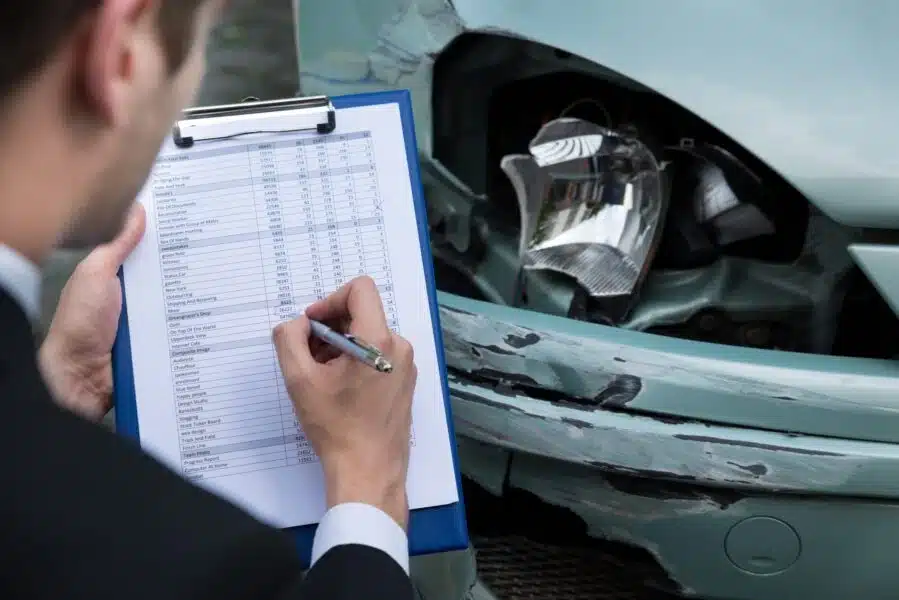Dealing with insurance adjusters after a car accident can be daunting, especially in the aftermath of a traumatic event. If you’re involved in a car accident in Richmond, VA, understanding the role of insurance adjusters and how they can impact your case is crucial. This blog post aims to equip you with practical tips and insights to handle insurance adjusters effectively, ensuring you are well-prepared to protect your rights and secure a fair settlement.
Understanding the Role of Insurance Adjusters
Insurance adjusters are the key players in determining the outcome of your car accident claim. Their primary responsibility is to assess the damages, gather information, and negotiate settlements on behalf of the insurance company. While their goal is to resolve claims quickly and cost-effectively, their interests may not always align with yours. Recognizing the adjuster’s role can help you better manage the situation.
Many Richmond residents are unaware that adjusters work for the insurance company, not the claimant. This distinction is vital because it reminds you that their primary objective is to minimize the payout. Understanding their agenda can empower you to be more vigilant and proactive in your dealings with them.
Adjusters will collect evidence, such as police reports, medical records, and witness statements, to evaluate the claim. It’s important to remember that they’re skilled negotiators trained to interpret these documents in favor of the insurance company. Being informed about their methods can help you anticipate their approach and prepare your response accordingly.
Handling Insurance Adjusters
When you’re contacted by an insurance adjuster, it’s essential to know how to interact with them effectively. Follow these steps to ensure you’re handling the situation appropriately and safeguarding your interests.
Stay Calm and Polite
The first step is to remain calm and polite during your interactions. It’s natural to feel emotional after an accident, but maintaining composure can prevent misunderstandings and miscommunications. Being courteous also sets a positive tone for future negotiations.
When speaking with the adjuster, avoid raising your voice or expressing frustration. This professional demeanor builds rapport and demonstrates that you’re serious about your claim. Remember, staying calm doesn’t mean being complacent; it’s about asserting your rights with confidence and clarity.
If you’re unsure how to respond to certain questions, don’t hesitate to ask for clarification or request time to think. Taking a moment to gather your thoughts can prevent inadvertently providing information that could weaken your case.
Be Cautious with Your Words
What you say to the adjuster can significantly impact your claim’s outcome. Always be cautious with your words and avoid discussing specifics about the accident or your injuries without consulting a legal professional first.
Provide only essential information such as your name, contact details, and policy number. If asked about the accident, stick to the facts and avoid embellishing or admitting fault. Remember, anything you say can be used against you in negotiations, so it’s best to keep your statements concise and factual.
It’s also a good idea to avoid discussing your medical condition in detail. Instead, inform the adjuster that you’ll provide relevant medical documentation when appropriate. This approach ensures that your medical information is presented accurately and comprehensively.
Document All Communications
Keeping a detailed record of all communications with the insurance adjuster is essential. Document the date, time, and content of each conversation, including any promises or agreements made by either party.
This documentation can serve as valuable evidence if disputes arise during the negotiation process. It also helps ensure that you can accurately recall details in future interactions, providing consistency in your statements and requests.
If possible, communicate in writing via email or letter. Written correspondence creates a clear paper trail and reduces the risk of misinterpretation or miscommunication, protecting your interests throughout the claims process.
Recognizing Common Tactics Used by Insurance Adjusters
Insurance adjusters may employ various tactics to minimize settlements. Understanding these strategies can help you recognize and respond to them effectively, ensuring a fair outcome for your case.
Lowball Offers
One common tactic is offering a low initial settlement amount in hopes that you’ll accept it without question. These offers often don’t reflect the true value of your claim and may not cover all your expenses or damages.
If you receive a lowball offer, don’t feel pressured to accept it immediately. Take your time to review the offer, compare it to your estimated costs, and consult with a legal professional if needed. Understanding the full scope of your damages ensures you’re negotiating from an informed position.
Requesting Recorded Statements
Adjusters might ask for a recorded statement, claiming it’s necessary to process your claim. While providing a recorded statement may seem straightforward, it’s not always in your best interest.
Recorded statements can be used to undermine your claim by highlighting inconsistencies or admissions of fault. Politely decline the request until you’ve had a chance to speak with an attorney who can guide you through the process.
Delaying Tactics
Another strategy is delaying the claims process to pressure you into accepting a lower settlement. Adjusters may stall by requesting additional documentation or prolonging negotiations, hoping that financial stress will prompt a quick resolution.
Be patient and persistent, and don’t hesitate to follow up regularly. Document all requests and responses to build a clear record of the delay. If the situation remains unresolved, seek legal assistance to expedite the process and protect your rights.
Conclusion
Navigating the complexities of dealing with insurance adjusters after a car accident in Richmond, VA, can be challenging. By understanding the adjuster’s role, using effective communication strategies, and recognizing common tactics, you can safeguard your interests and work towards a fair settlement.
Remember, you don’t have to face this process alone. The Johnson Injury Firm is here to provide expert legal guidance and support. Contact us at (804) 262-9000 to schedule a consultation and take the first step towards protecting your rights and securing the compensation you deserve.





